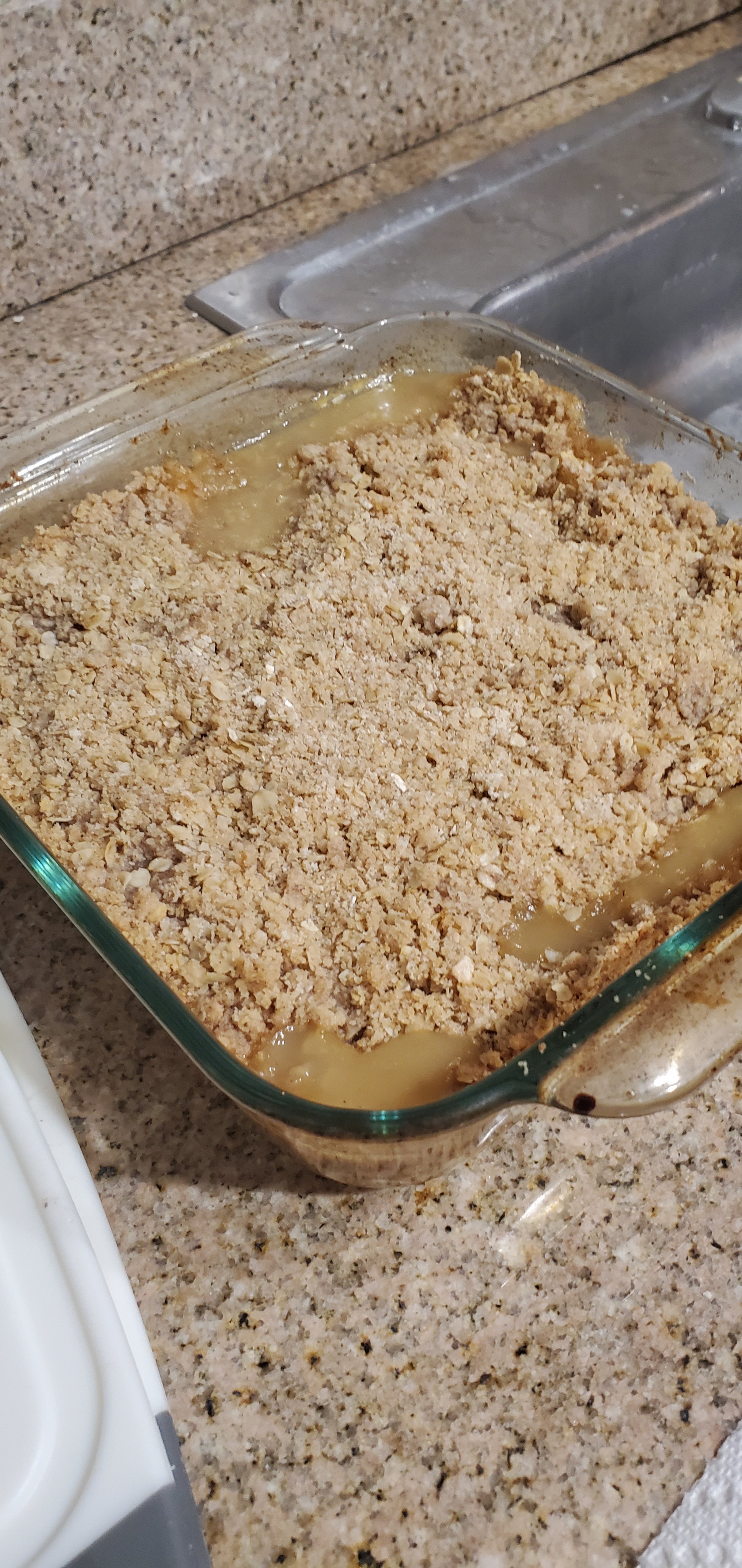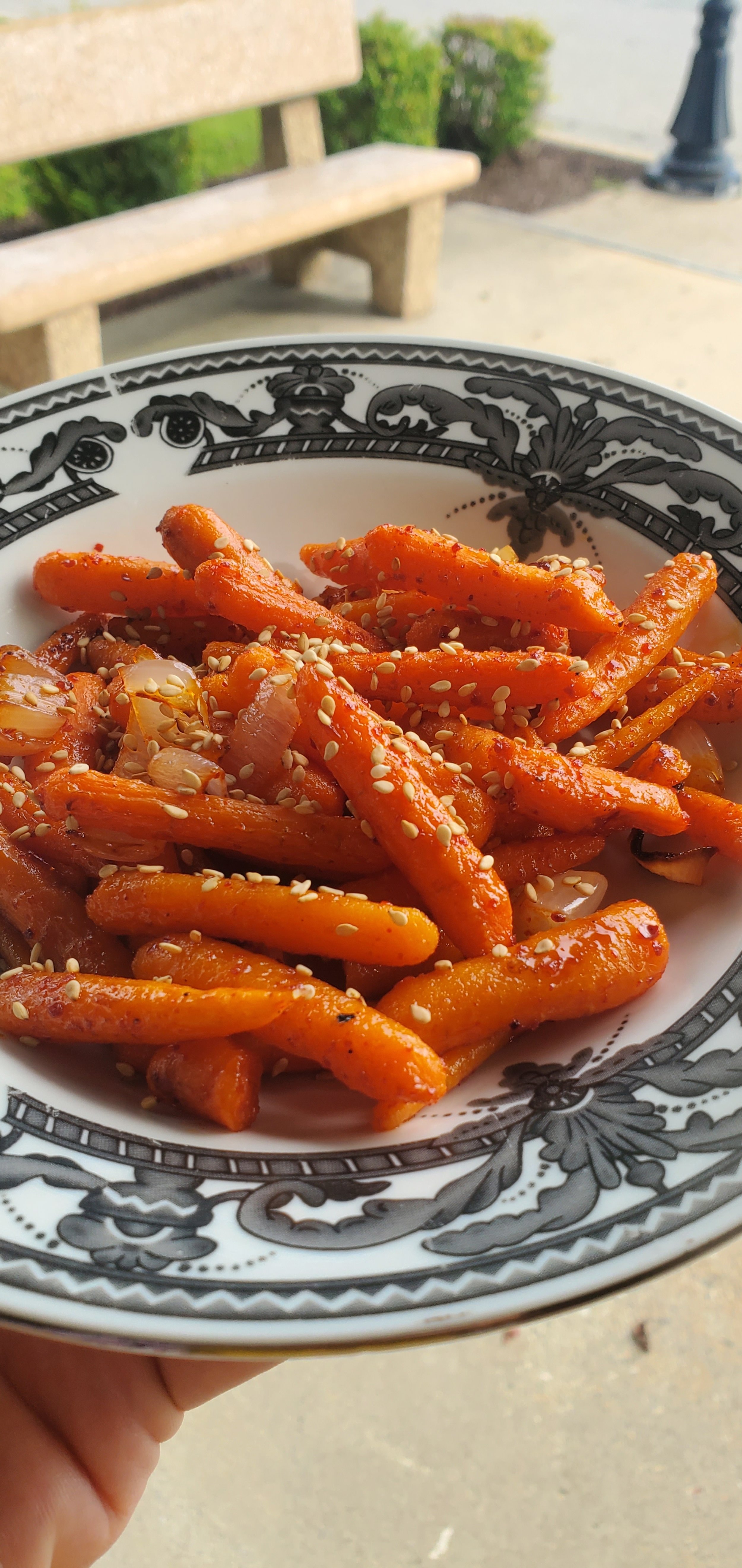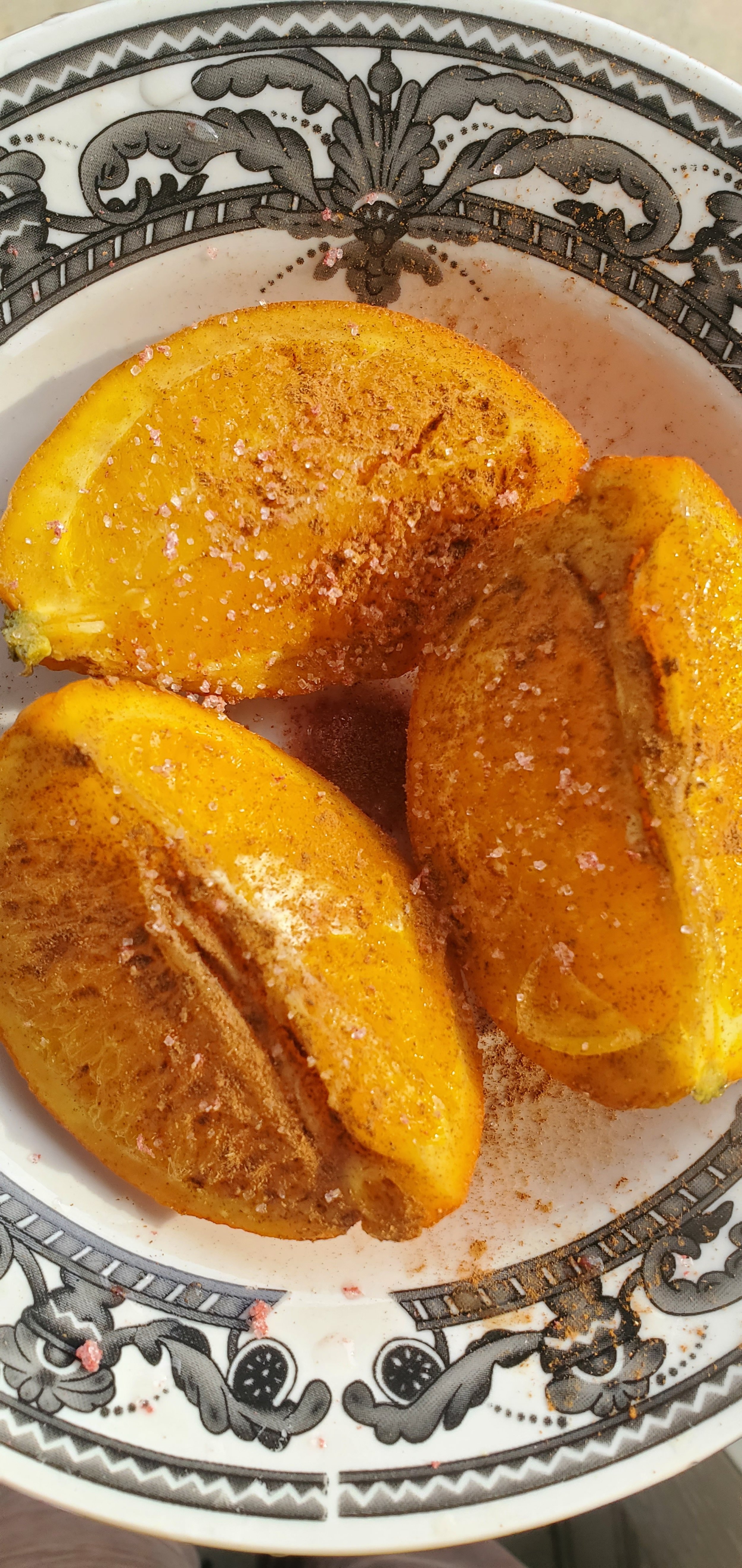Food for Thought
Video by Matt Frey and Mike Fallanca
With the sun on my neck and my hands in the dirt, I looked around the Downing Park Urban Farm to see students harvesting potatoes, planting mizuna, saving lavender from bindweed, and I thought ChatGPT could never.
This fall, I taught a new course, ENG 2035: The Recipe Book: History, Theory, Practice, which made its mission to blend traditional liberal arts values (lots of writing and seminar-style discussion informed by historical and cultural context) with experiential learning out in the community. As a class, we asked ourselves, “What we wanted education to look like now?” After years of Zoom school and social distancing, what does a socially engaged classroom look like? With higher education discourse dominated by concerns over artificial intelligence and academic integrity, how do we achieve authentic learning?
In a world where generative language AI can write a paper in a matter of seconds and our phones have the answers to all of our questions, it’s not what you know that matters, but whether you know how to put that knowledge to good use. Mount Saint Mary College’s dedication to service can be found throughout the curriculum, cultivating these values for future nurses, teachers, and entrepreneurs. This class embraced this spirit: We took what we were learning about the history and significance of cookbooks and put it into action through experiential learning and service projects.
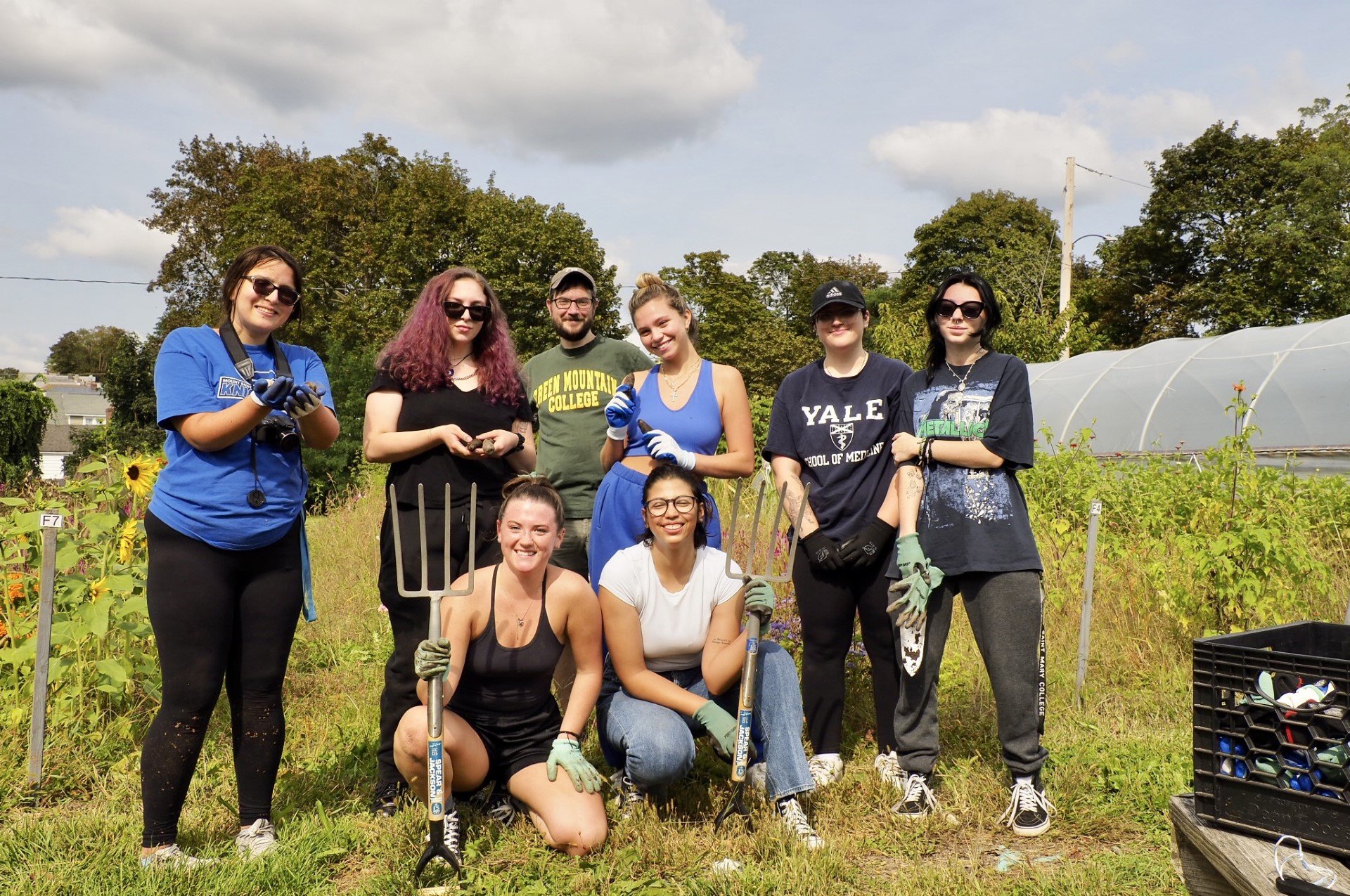
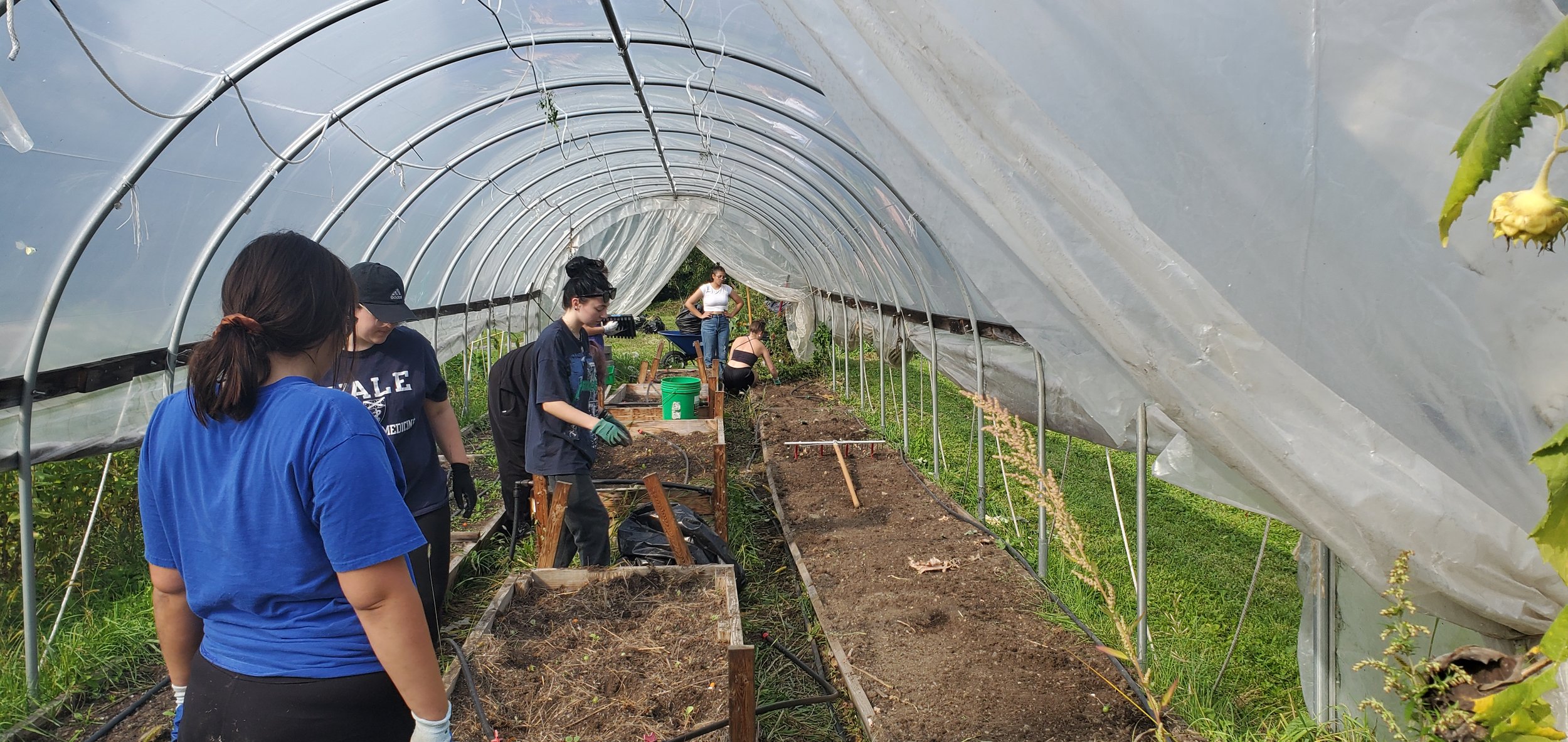
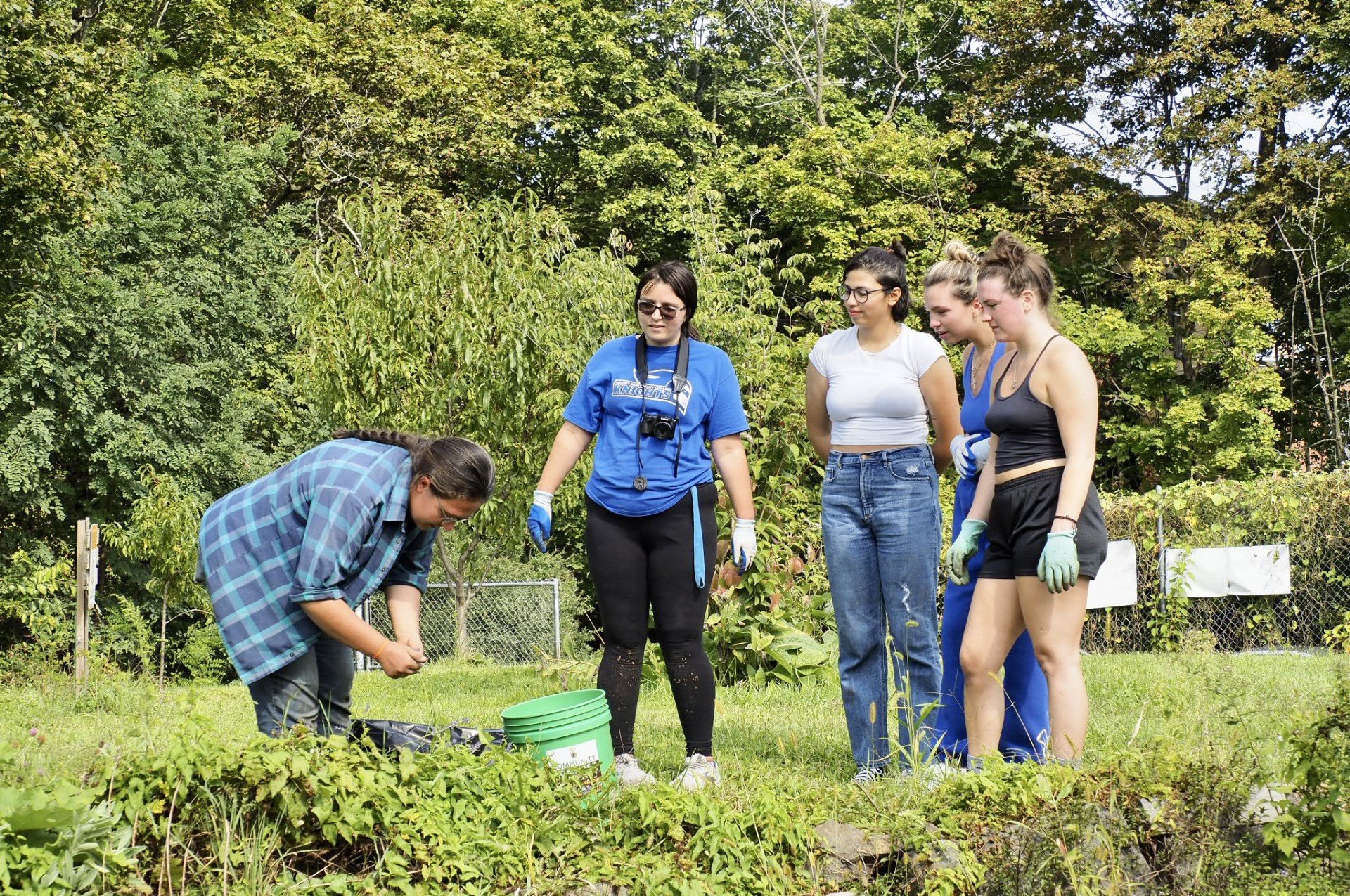
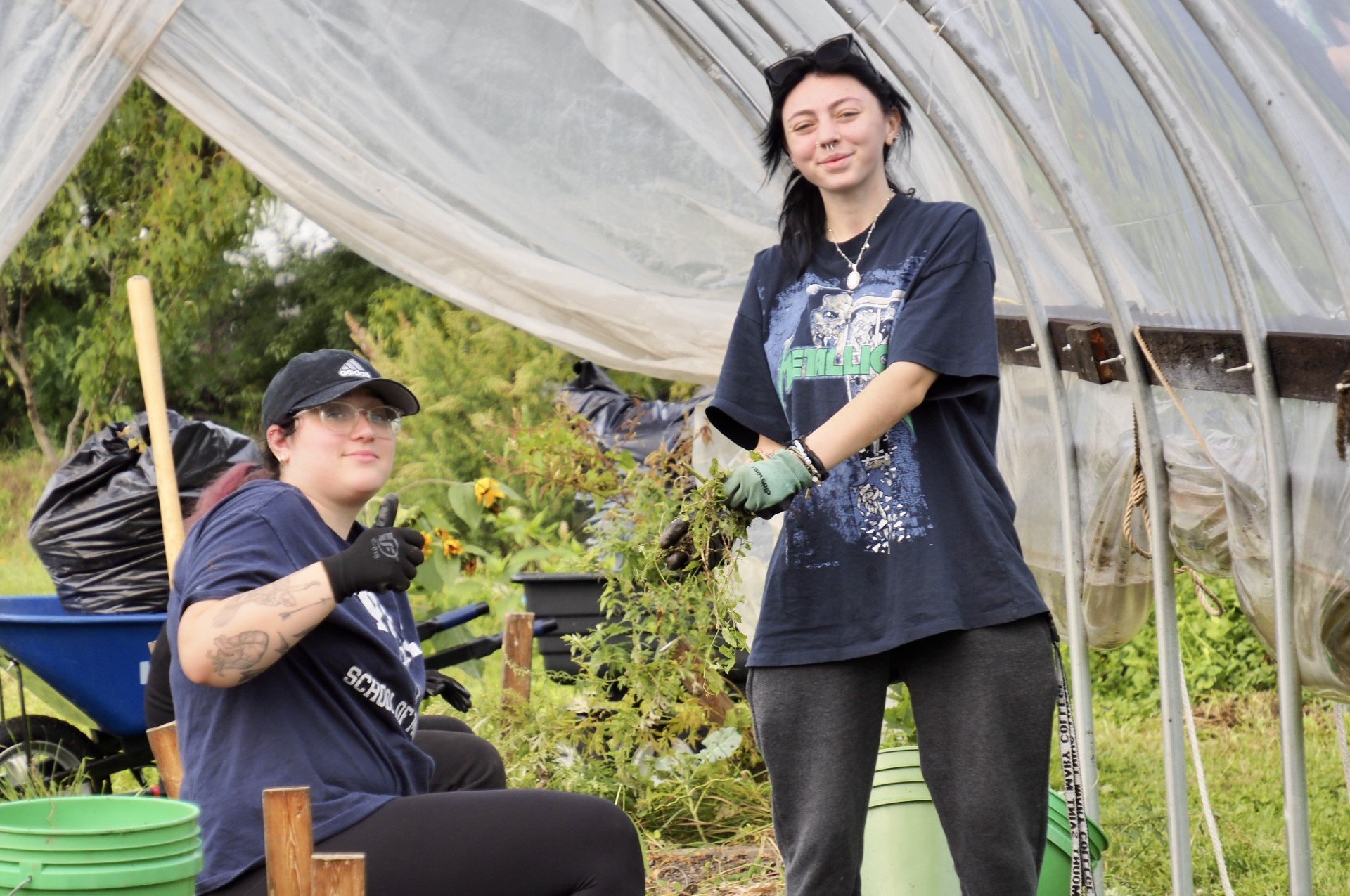
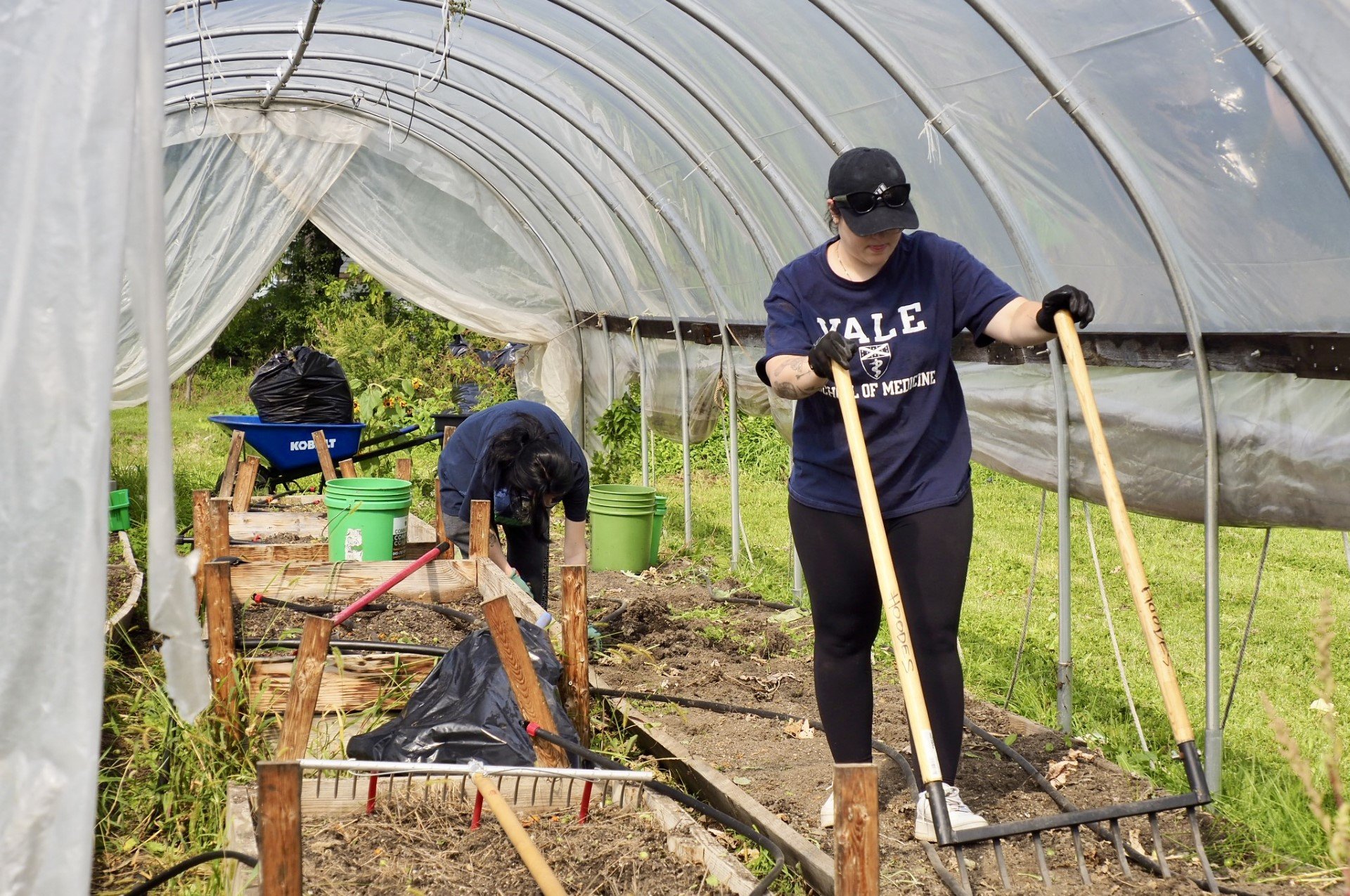
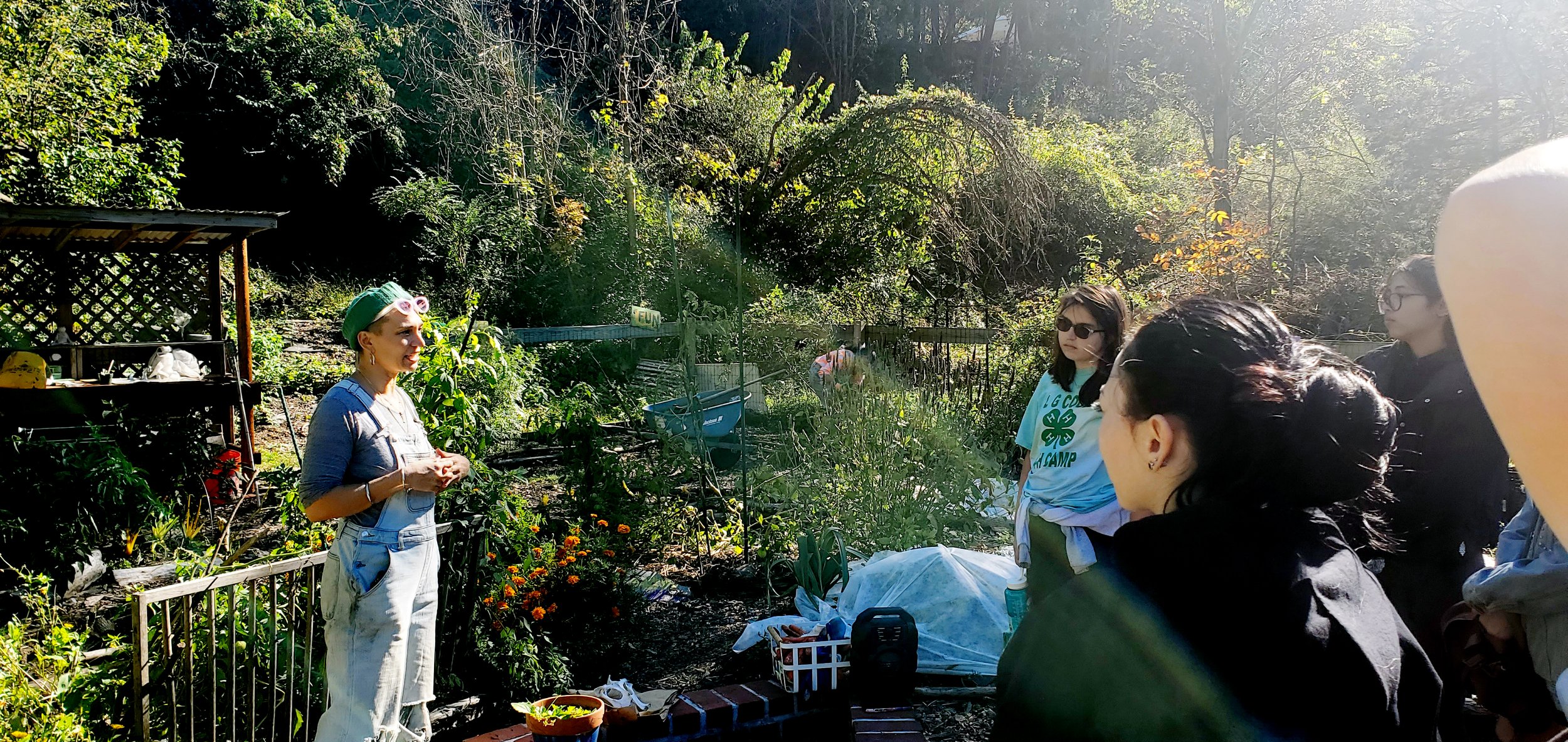
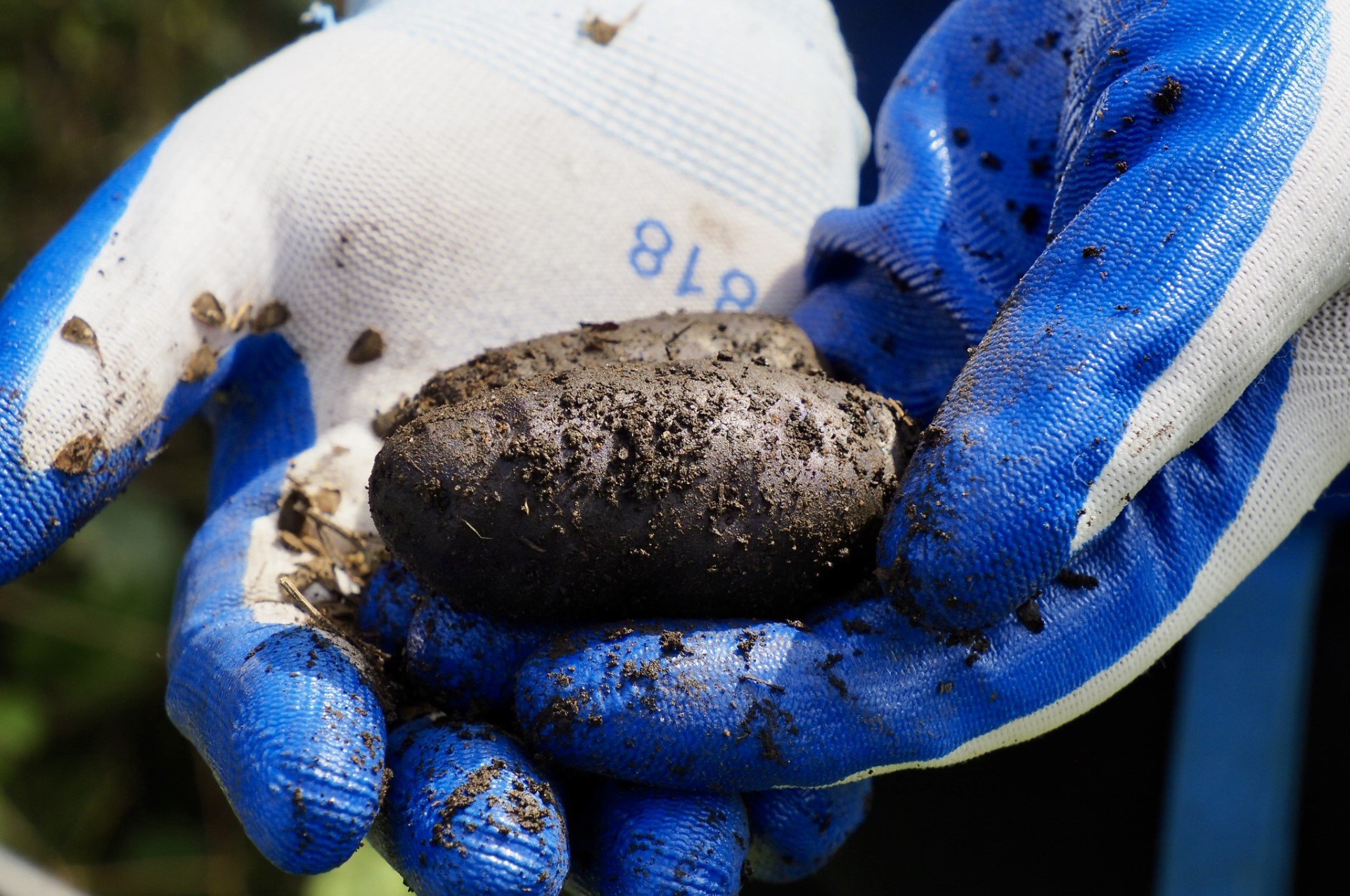
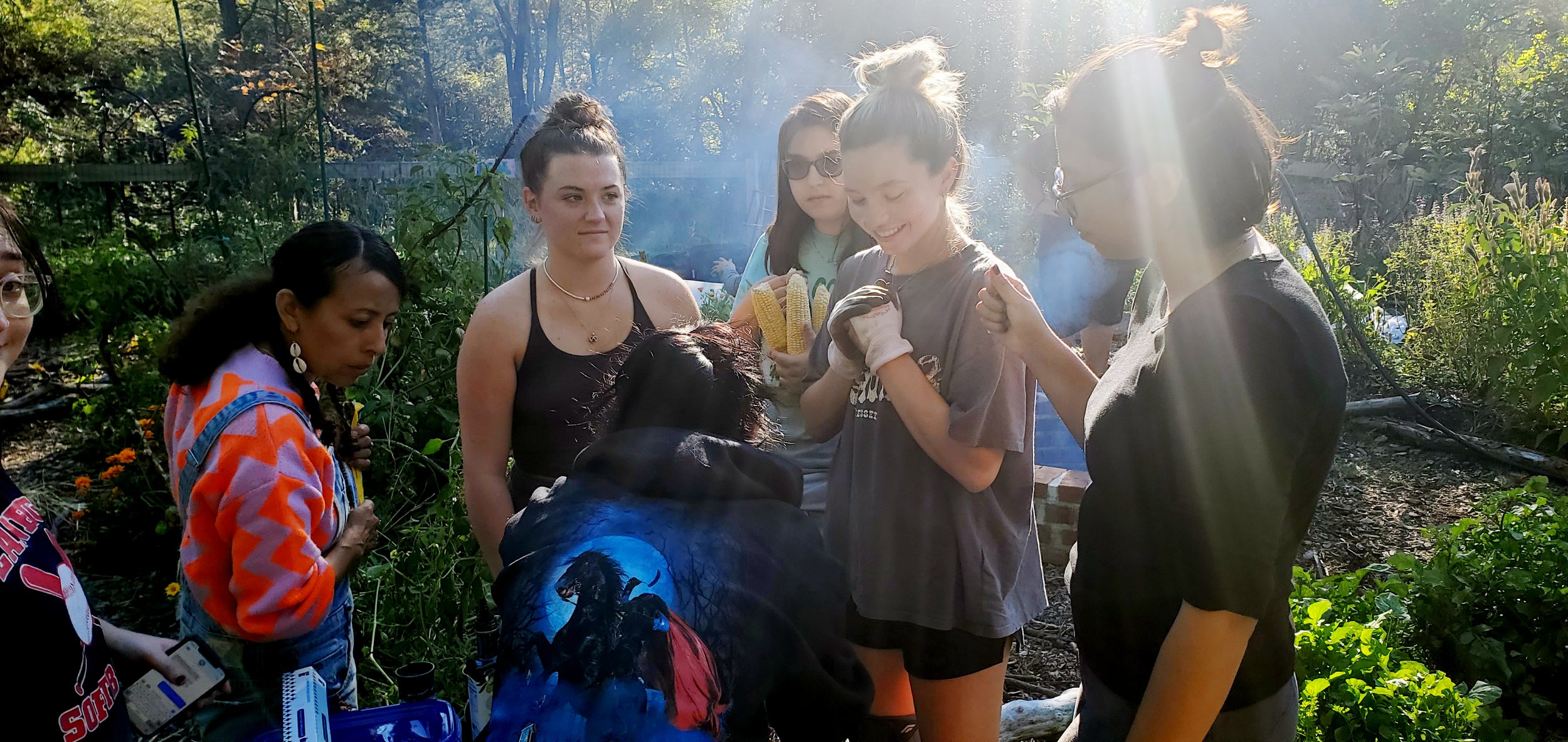
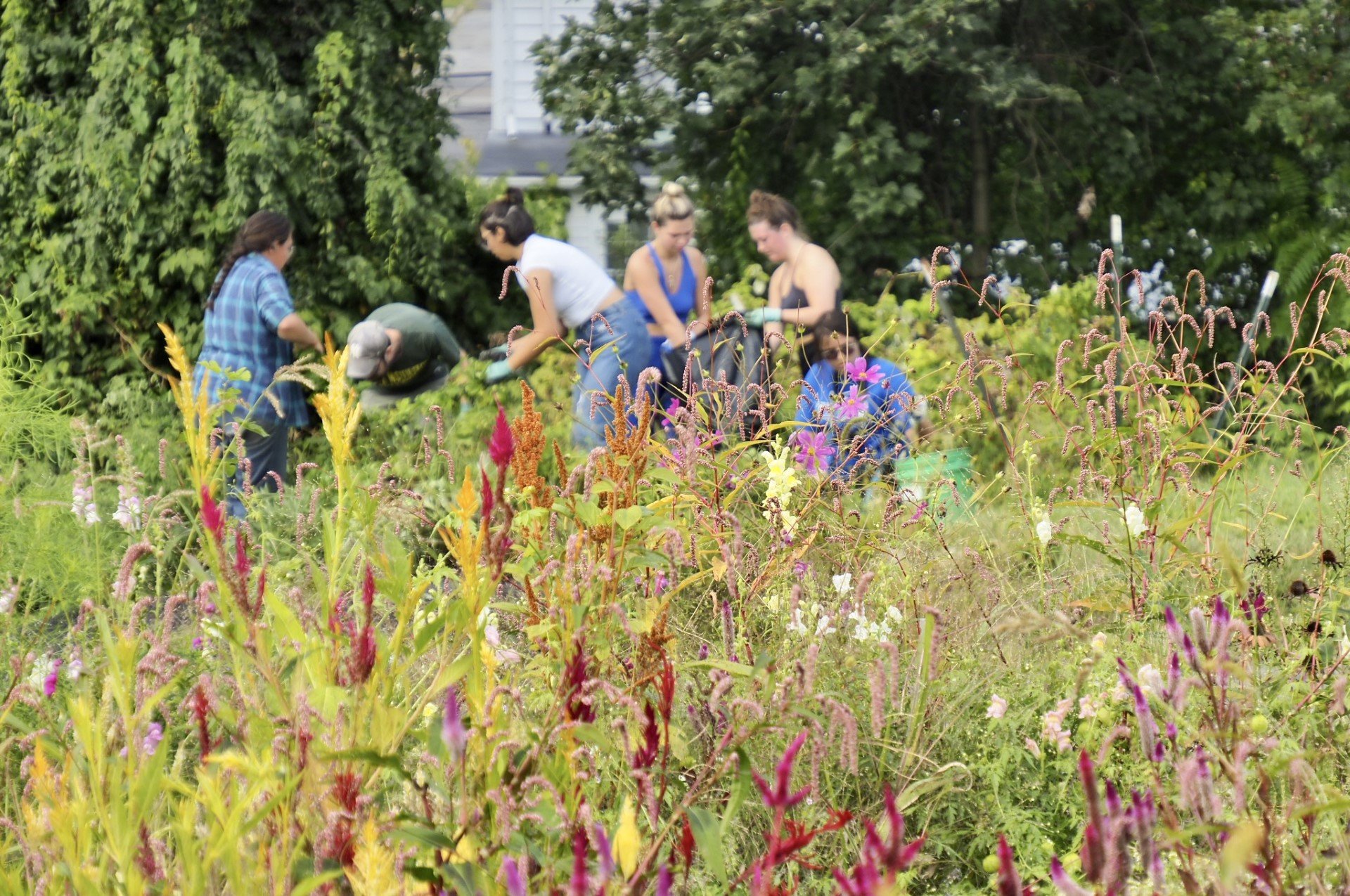
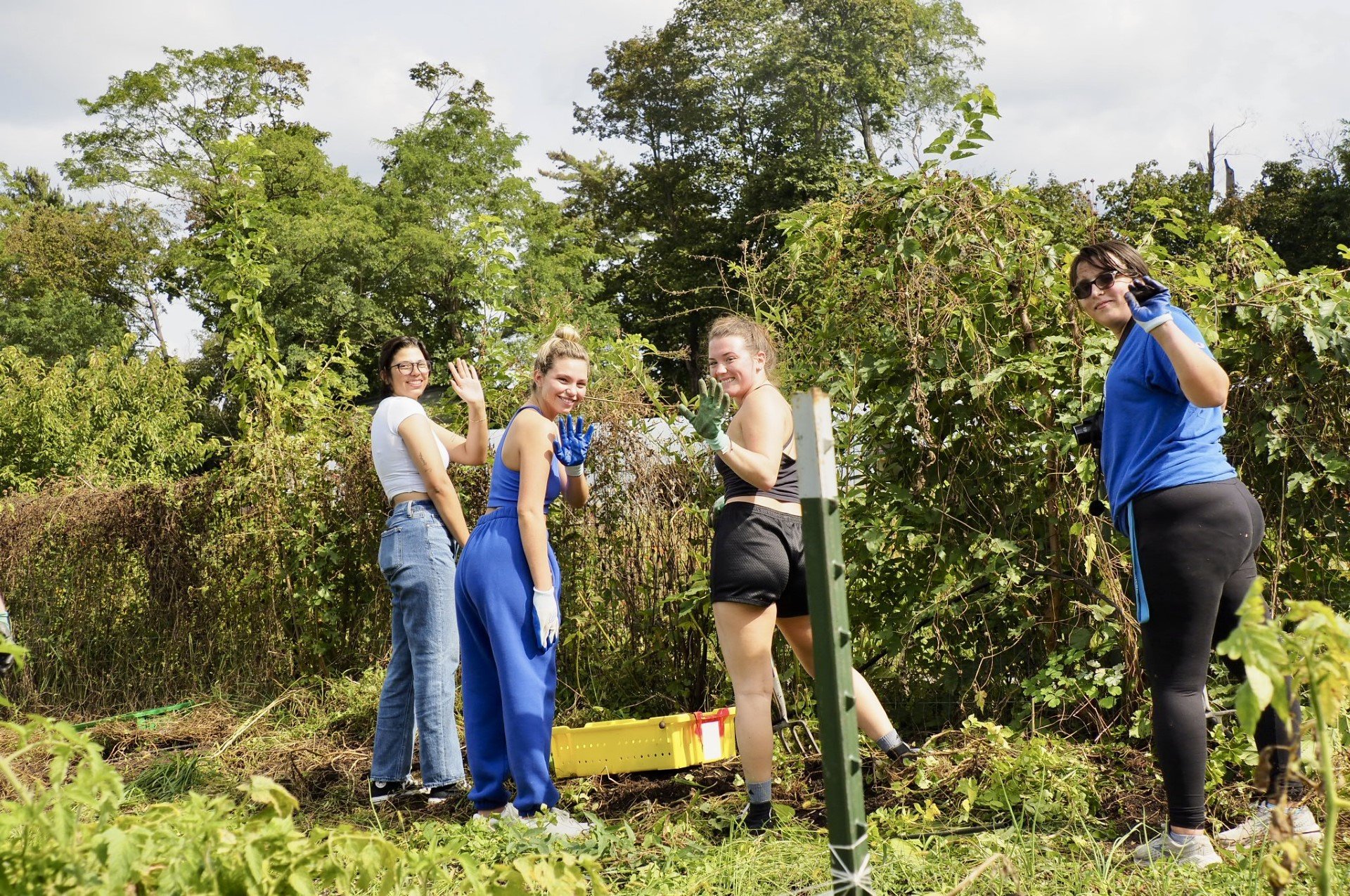
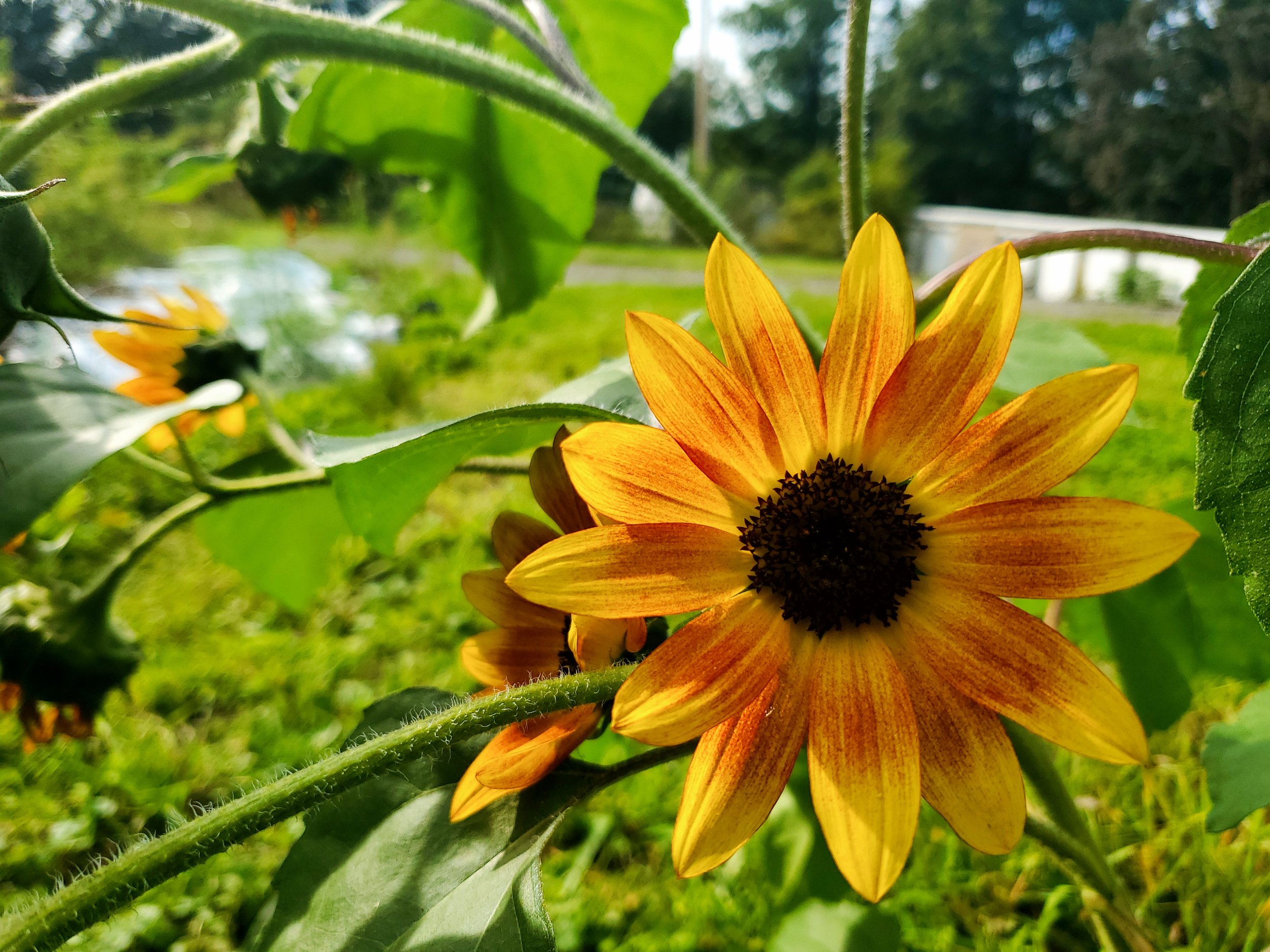
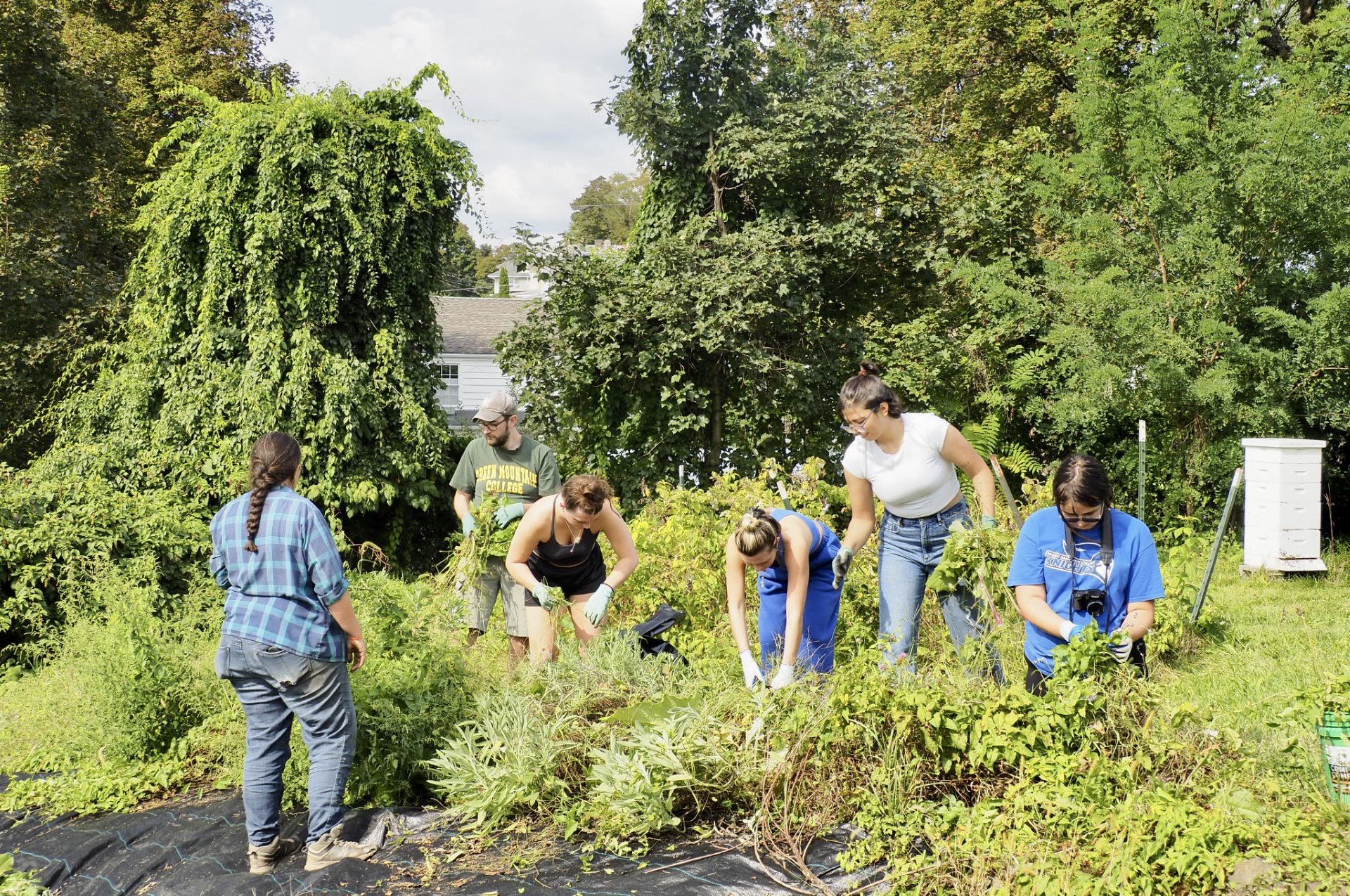
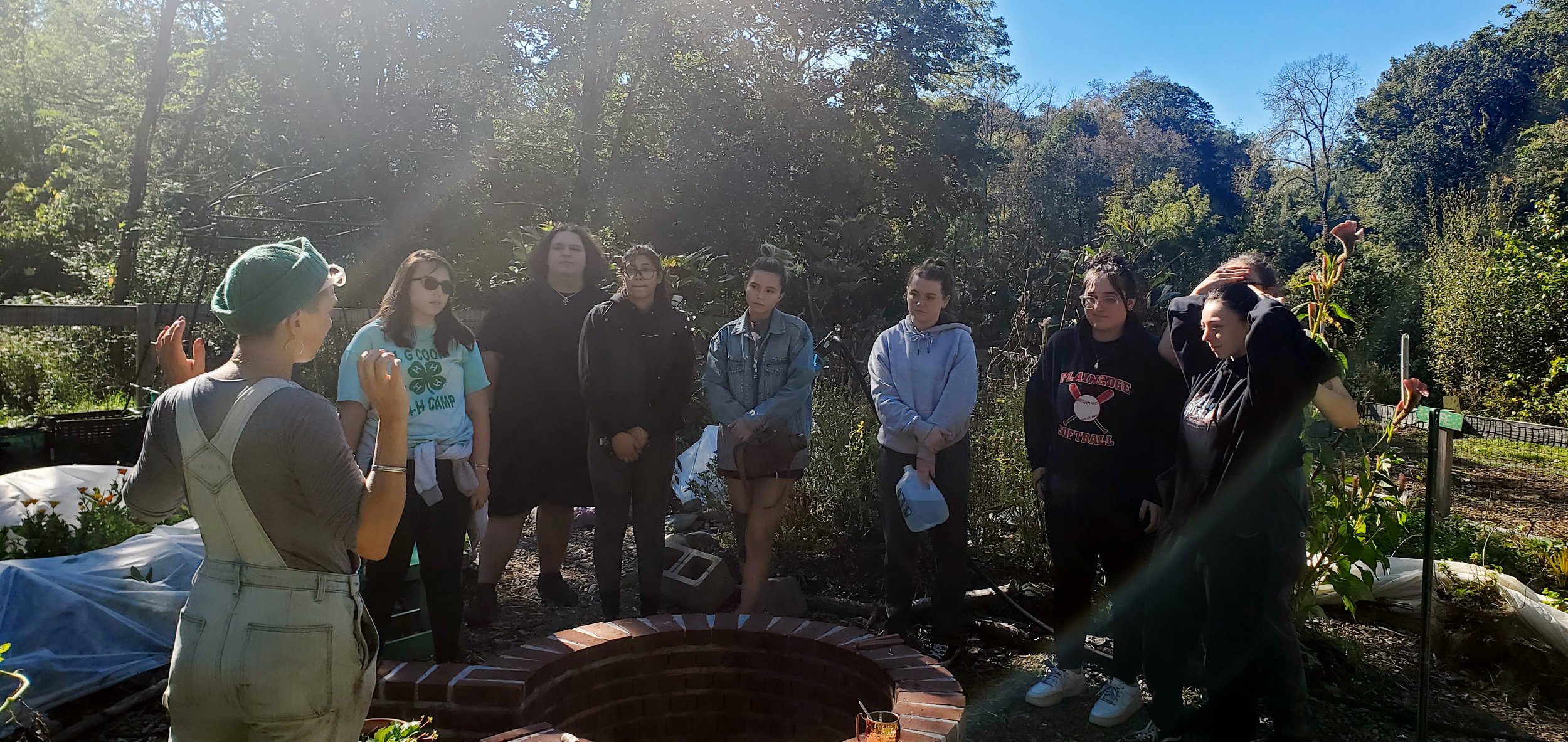
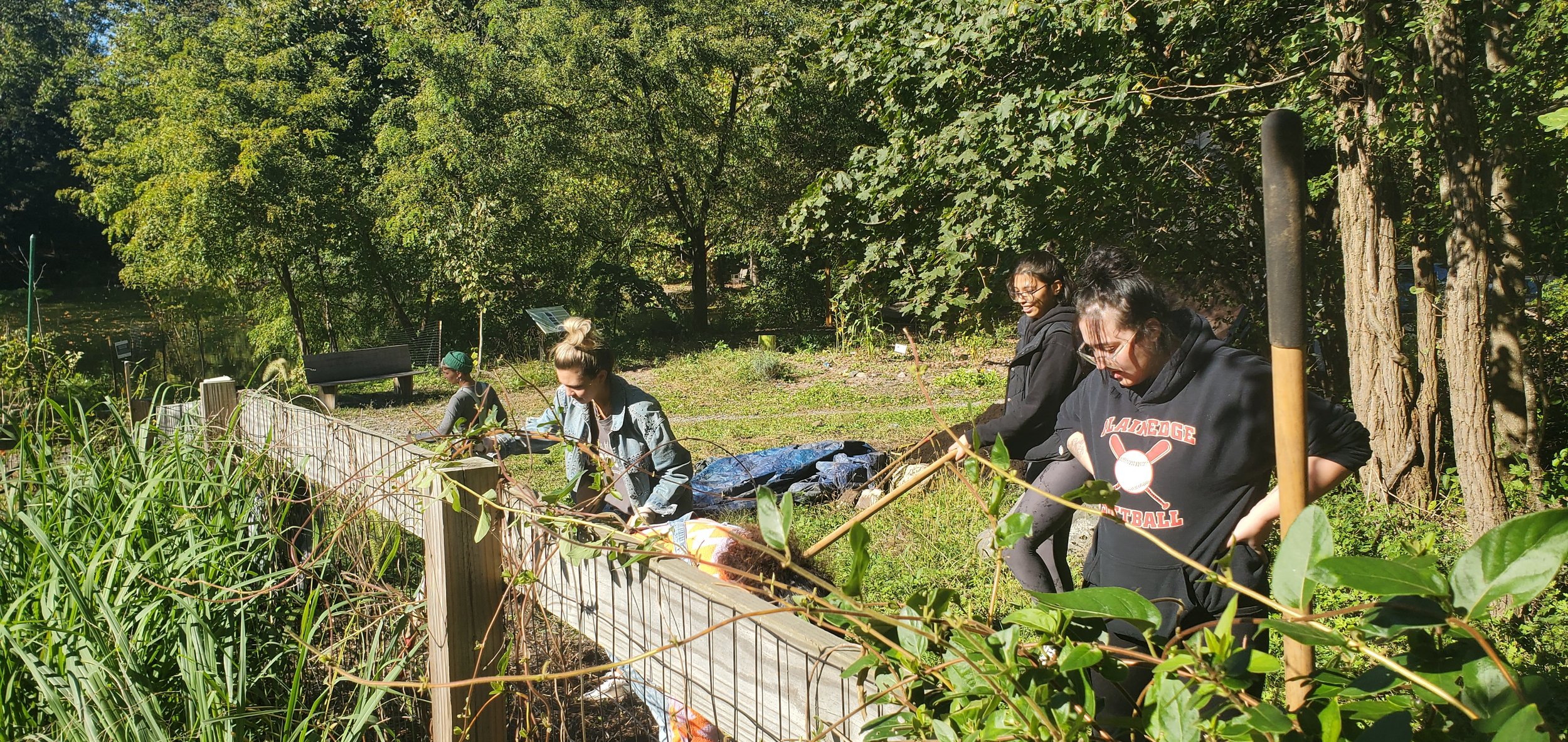
Photos by Professor Rob Wakeman and his class.
Using a flipped classroom format, lectures and assessments could be posted online, so we could use classroom time to do lab work. We read about cookbooks during famine in Tudor England and then visited food deserts in Newburgh; the politics of grand banquets during the English Civil War led to a baking challenge in the dorm kitchens; understanding European trepidation to indigenous ingredients in colonial America opened up to new possibilities for conviviality at the Sanctuary Healing Gardens in Newburgh; studying the relationship between food rationing and mental health during World War II helped us wrestle with the challenges of grocery shopping on SNAP benefits. Along the way, we collected canned goods for the Desmond Center and the campus food pantry, we wrote recipes for a fresh food giveaway, and we helped develop a wall calendar, complete with gardening tips and seasonal recipes, for the Newburgh Urban Farm and Food Initiative’s annual fundraiser. We also cooked, ate together, and talked about how recipes reflect and shape our relationships to our families, our communities, and our diverse and increasingly intermingled world. By the end of the semester, the students had written dozens of recipes which are more than instructions for making delicious food. They are powerful meditations on the meaning of food in our everyday lives.
Photo by Professor Rob Wakeman and his class.
Mount students collected canned goods for the Desmond Center and the campus food pantry.
Instead of a final exam, we invited the campus community to a potluck where the class presented their experiences. We heard about family recipes passed down through the generations – arancini, latkes, pupusas, krumkake, and more – and we discussed the challenges of writing clearly, vividly, and persuasively about something as ephemeral as taste.
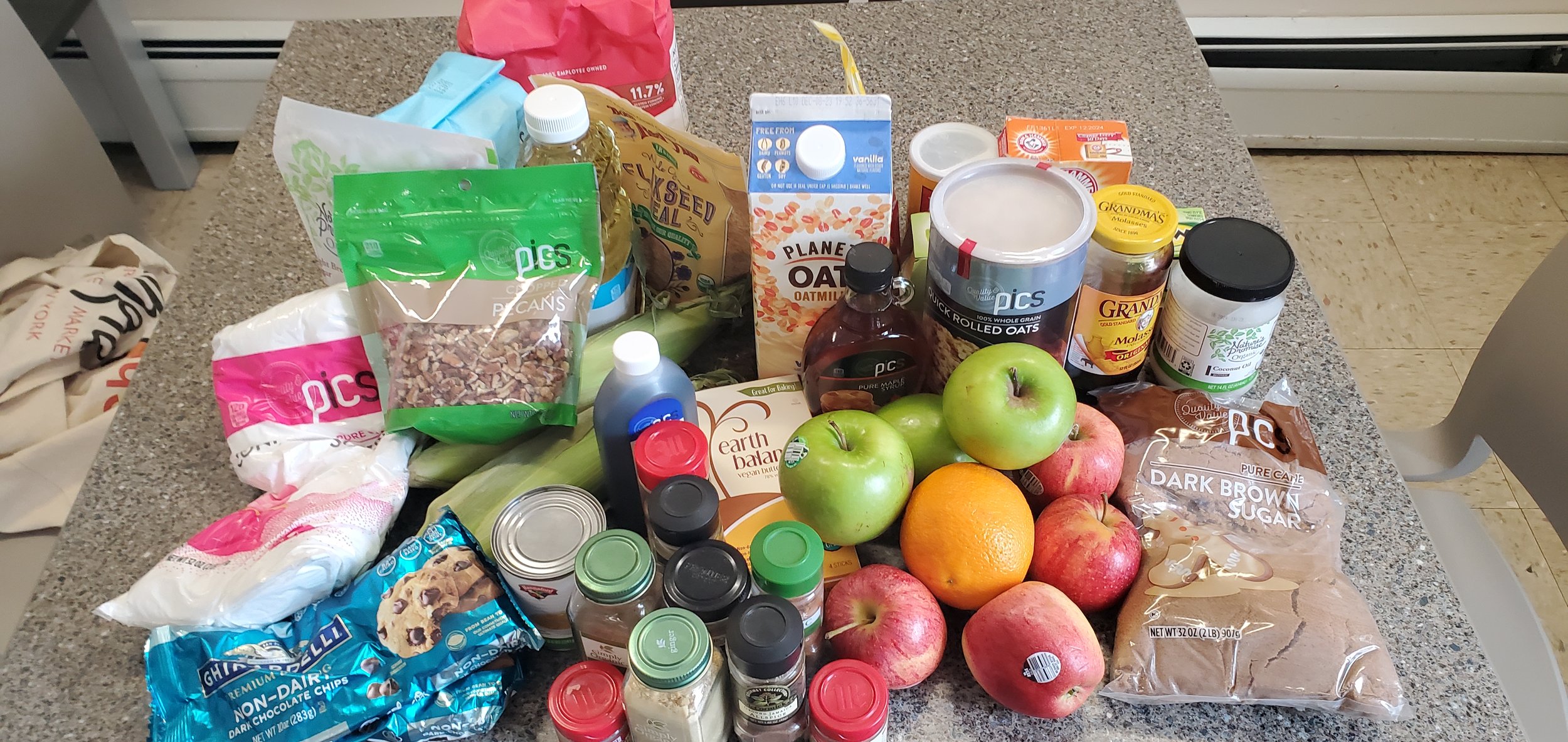
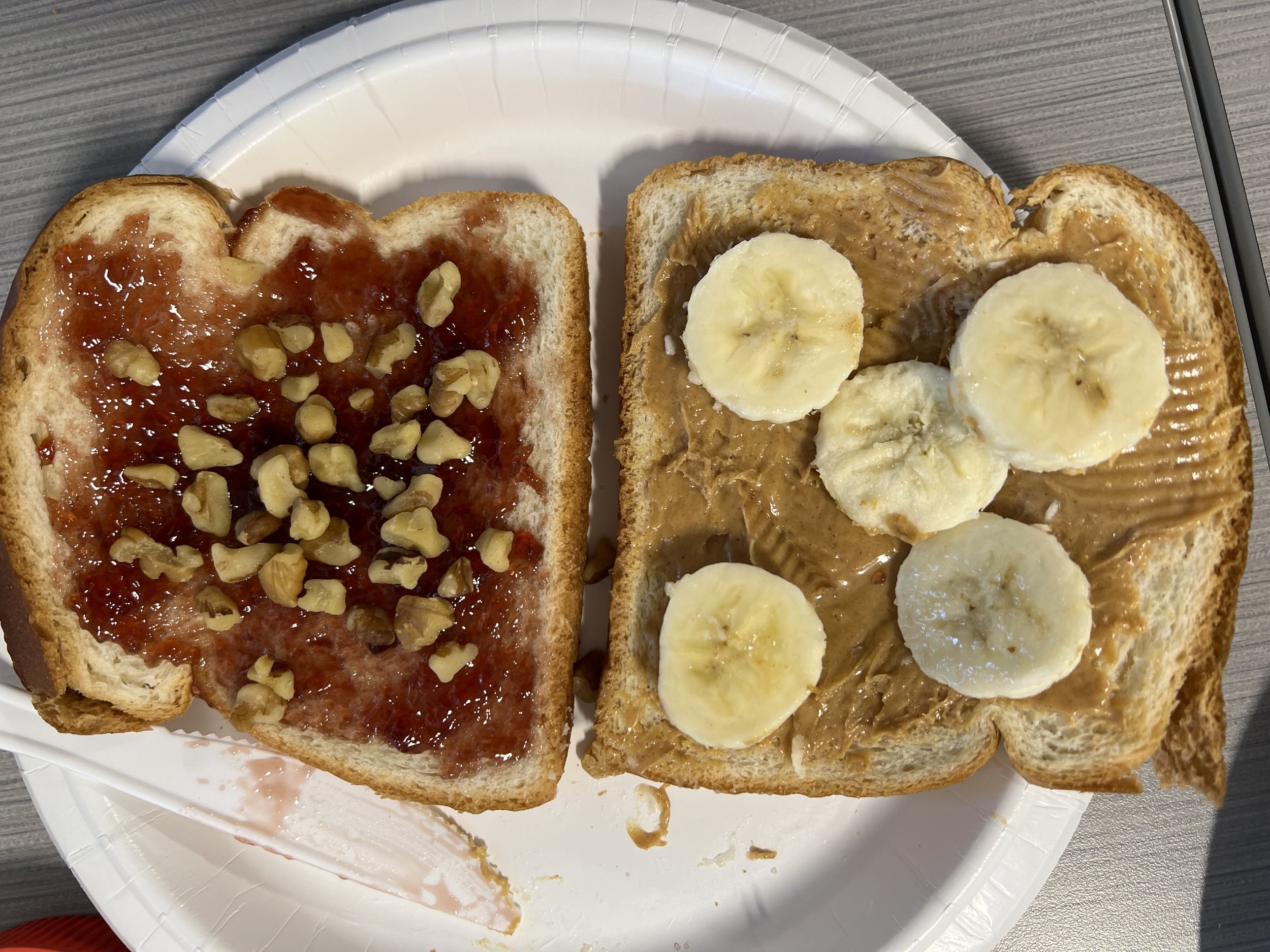
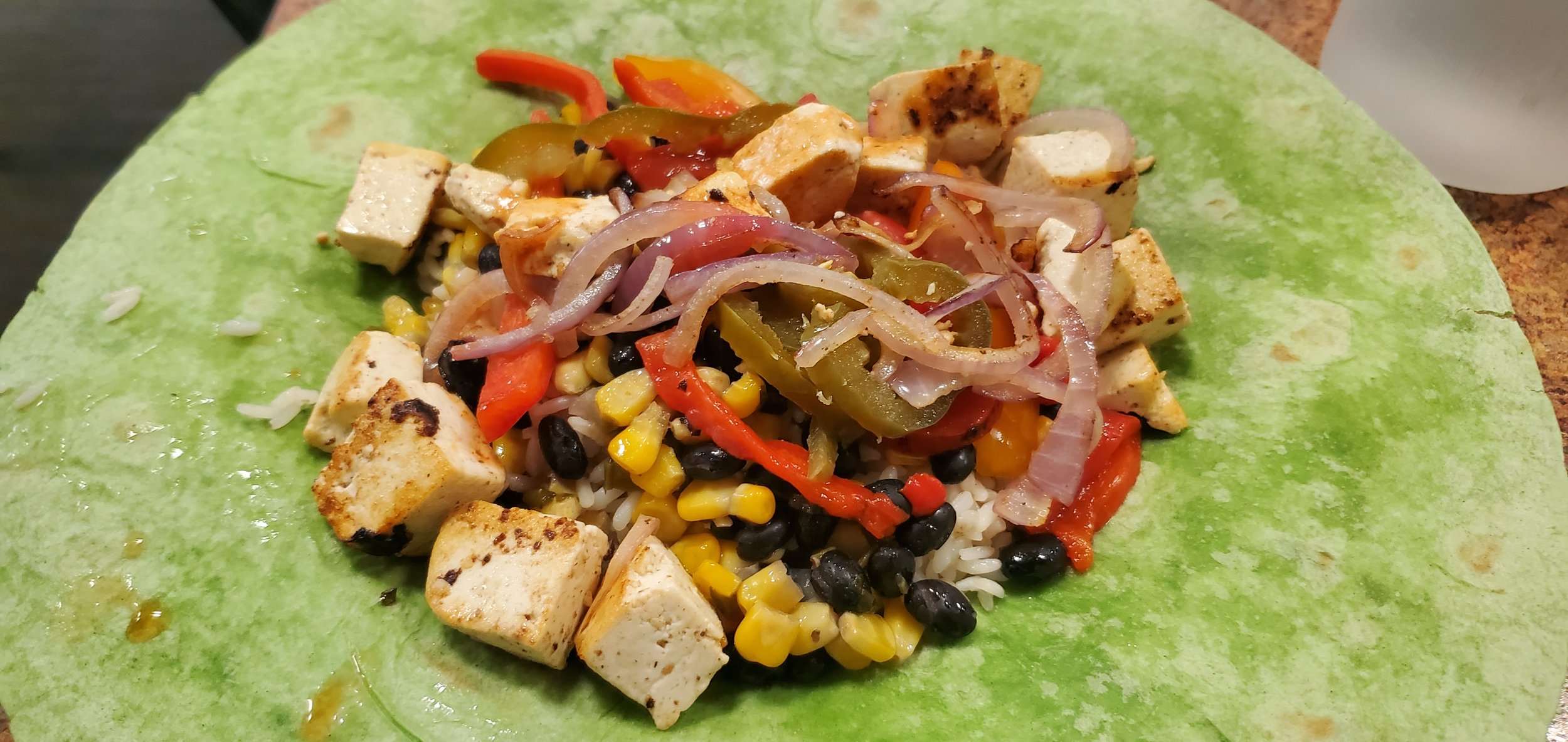
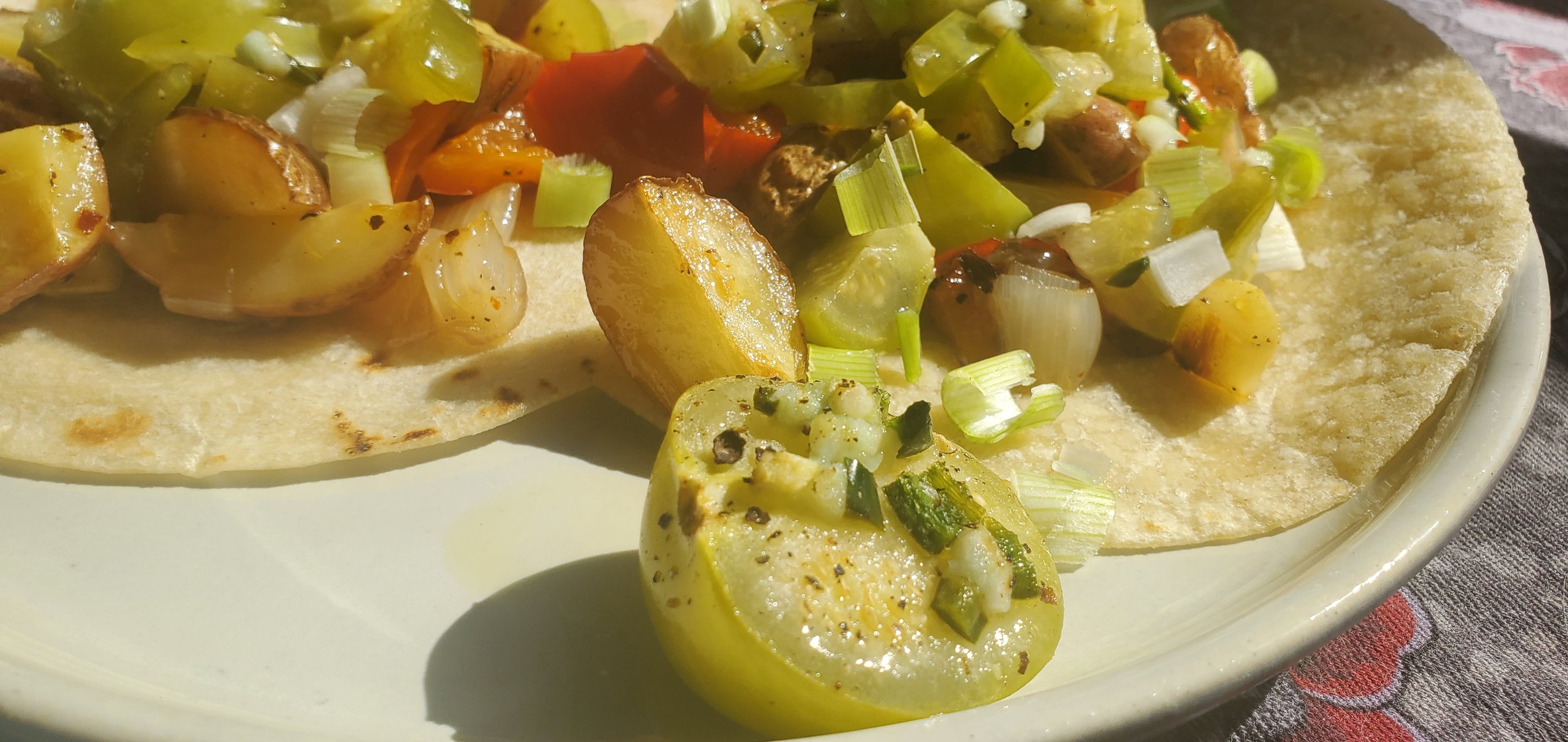
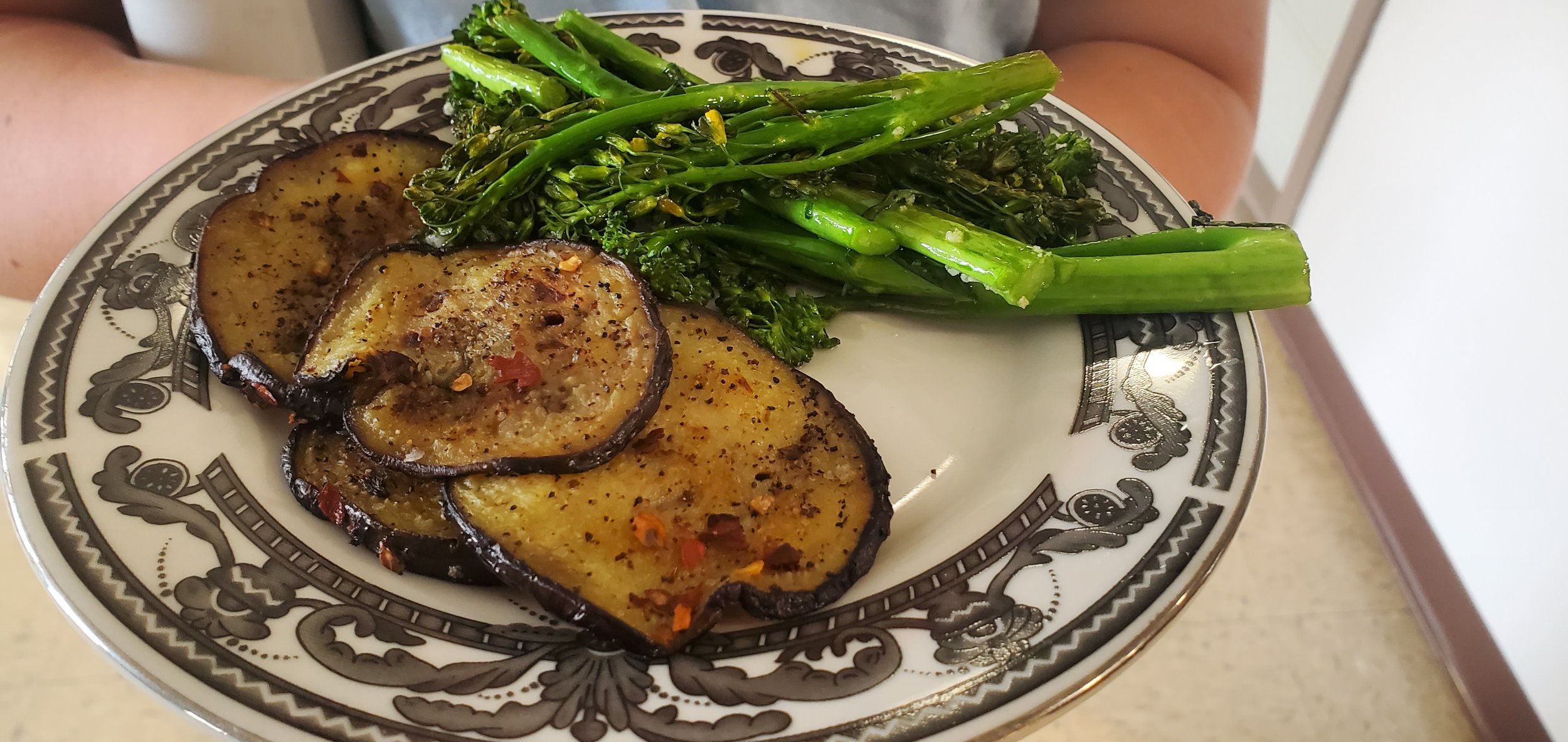
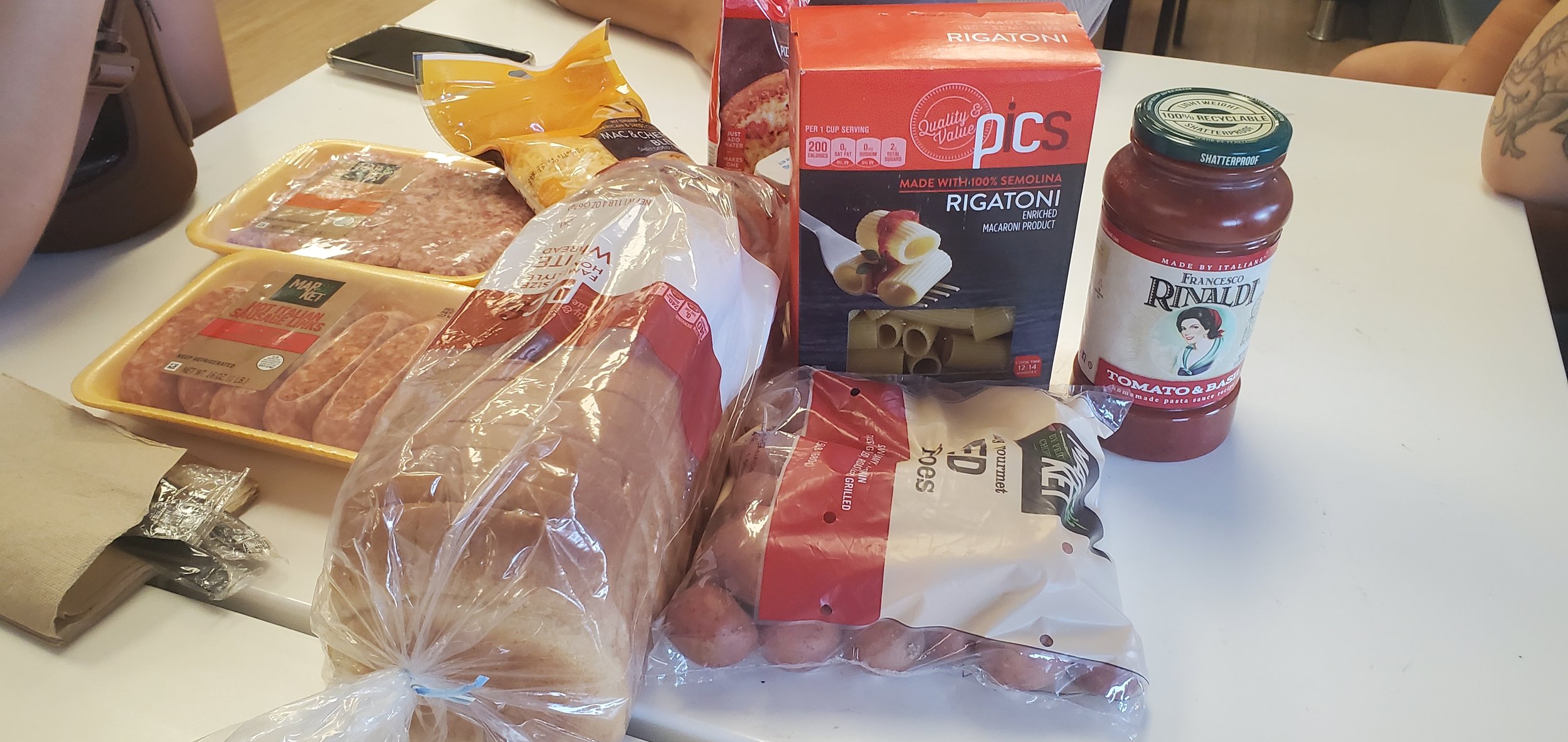
Photos by Professor Rob Wakeman and his class.
Ultimately, we concluded that thinking with recipes can reveal what it means to belong to a tradition but also to open ourselves to others, to create community by connecting with new friends and neighbors. As a necessary reminder of what makes a Mount education so distinct, this was a class that I found especially nourishing in every sense of the word.

